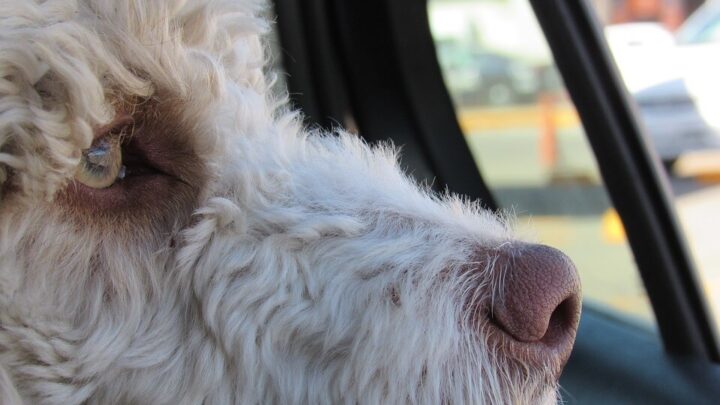It’s not uncommon for pets to develop a fear of car travel. This anxiety or fearfulness can develop for a number of reasons.
Anxiety during car travel is more likely if your pet had a lack of exposure to car trips prior to 16 weeks old, the brain development period when they adapt best to new experiences.
Some pets may develop an aversion to car travel if they start to associate car trips with being left at boarding or receiving injections at the vet, or if they ever have a negative experience whilst travelling (such as being involved in a car accident). Your pet may also be fearful of the car if they get carsick, or if they are naturally a bit anxious anyway.
If your pet shows signs of travel sickness, you can discuss the use of a safe anti-nausea medication with one of our veterinarians.
If your pet is mildly scared in the car, but can settle and be comforted, it can help to implement the following measures:
- Ensure your pet is always safely secured in the car, so they won’t fall off the seat if you have to stop suddenly
- Utilise calming scent hormone sprays, such as Feliway for cats or Adaptil for dogs
- These can be sprayed onto crate bedding or bandanas for dogs ten minutes prior to travel
- Play soft, calming music in the car, and talk to your pet soothingly
- Consult our team on how to gradually train your pet to feel more comfortable in their travel crate or in the car
If your pet is very anxious in the car, have a chat with our vets. In some cases, we can prescribe a calming medication for use one-to-two hours prior to car trips.
If your pet is generally anxious about other things too, they’ll often benefit most from daily anti-anxiety medication and a behaviour consult with our very own Dr Lauren.



